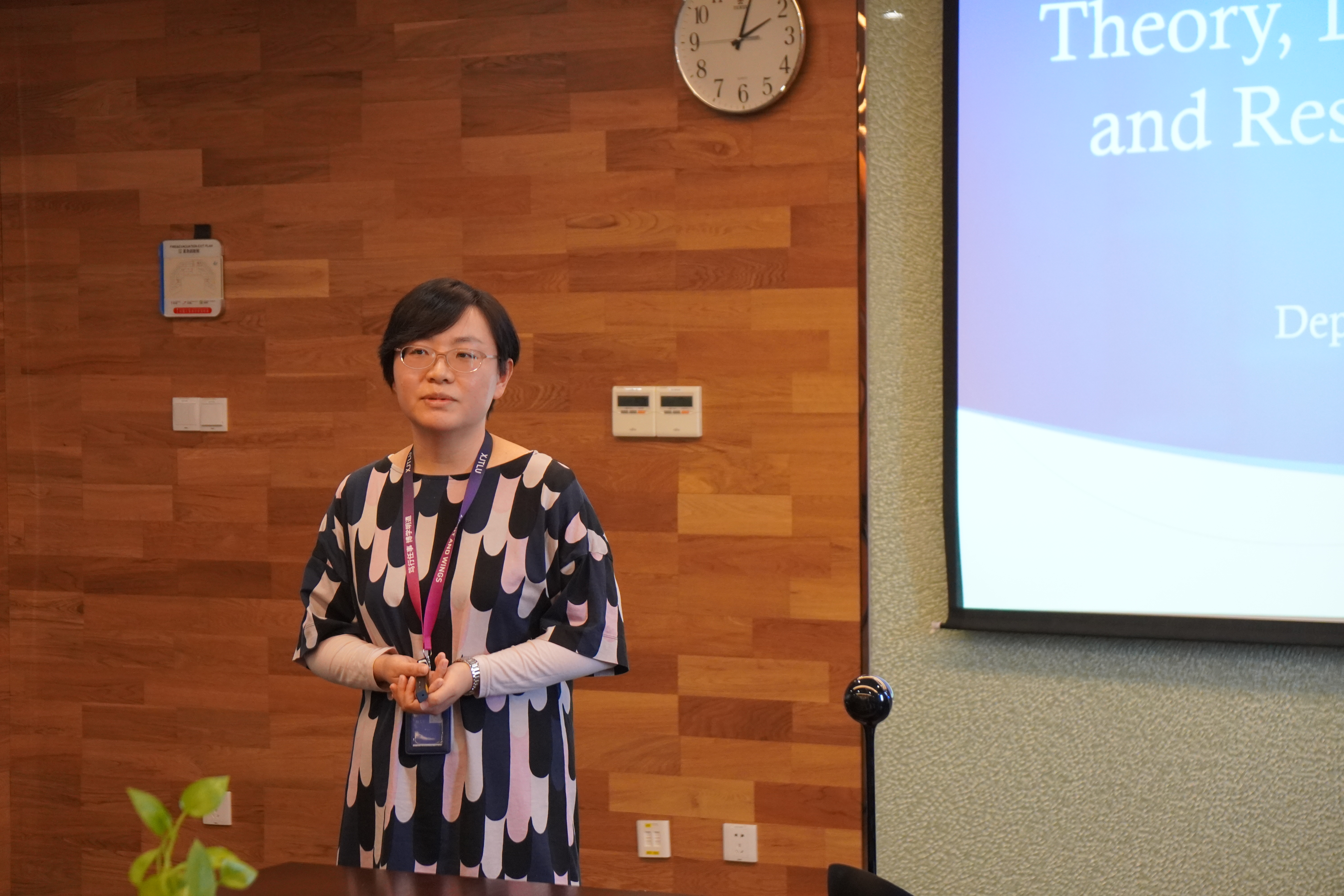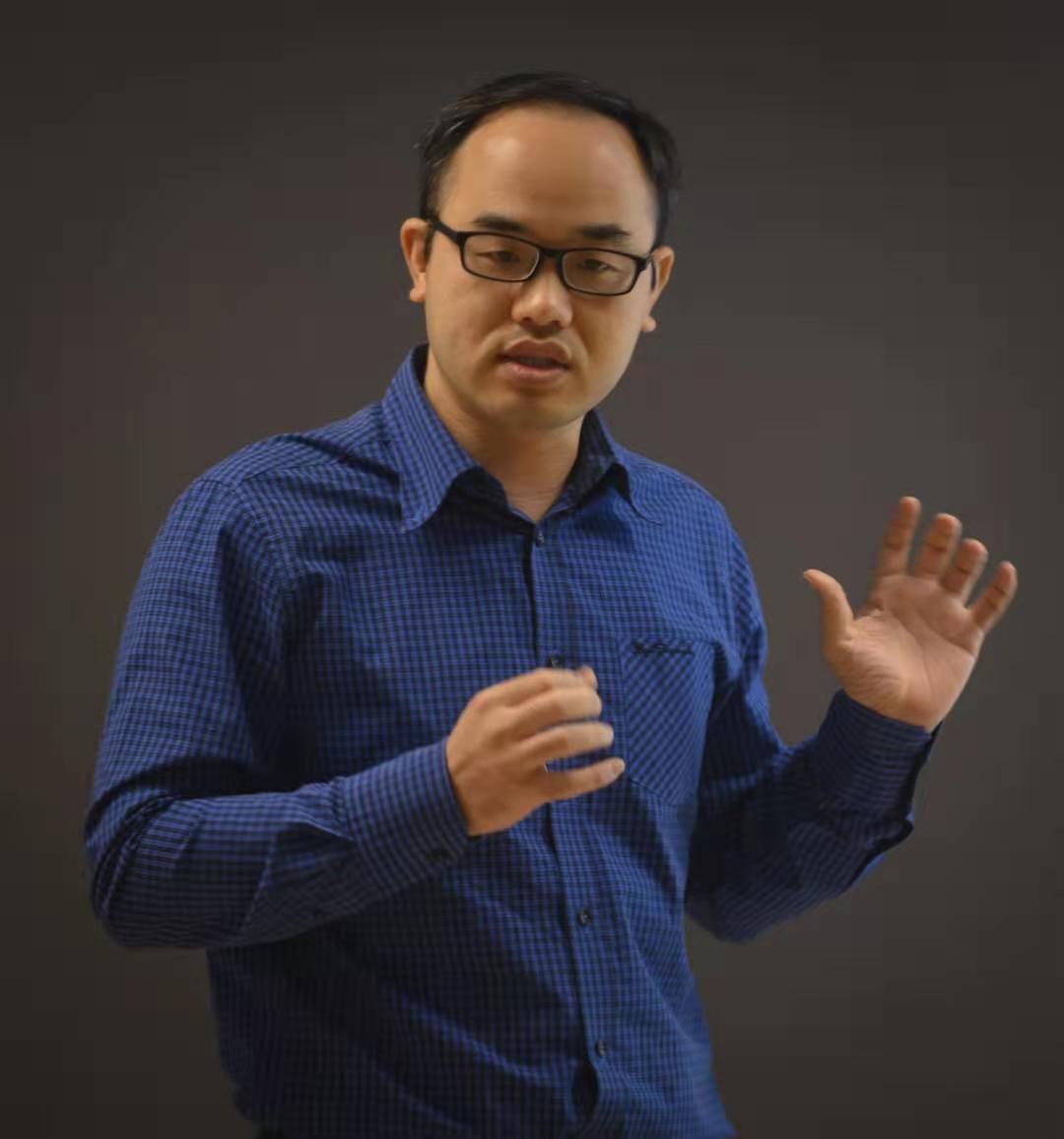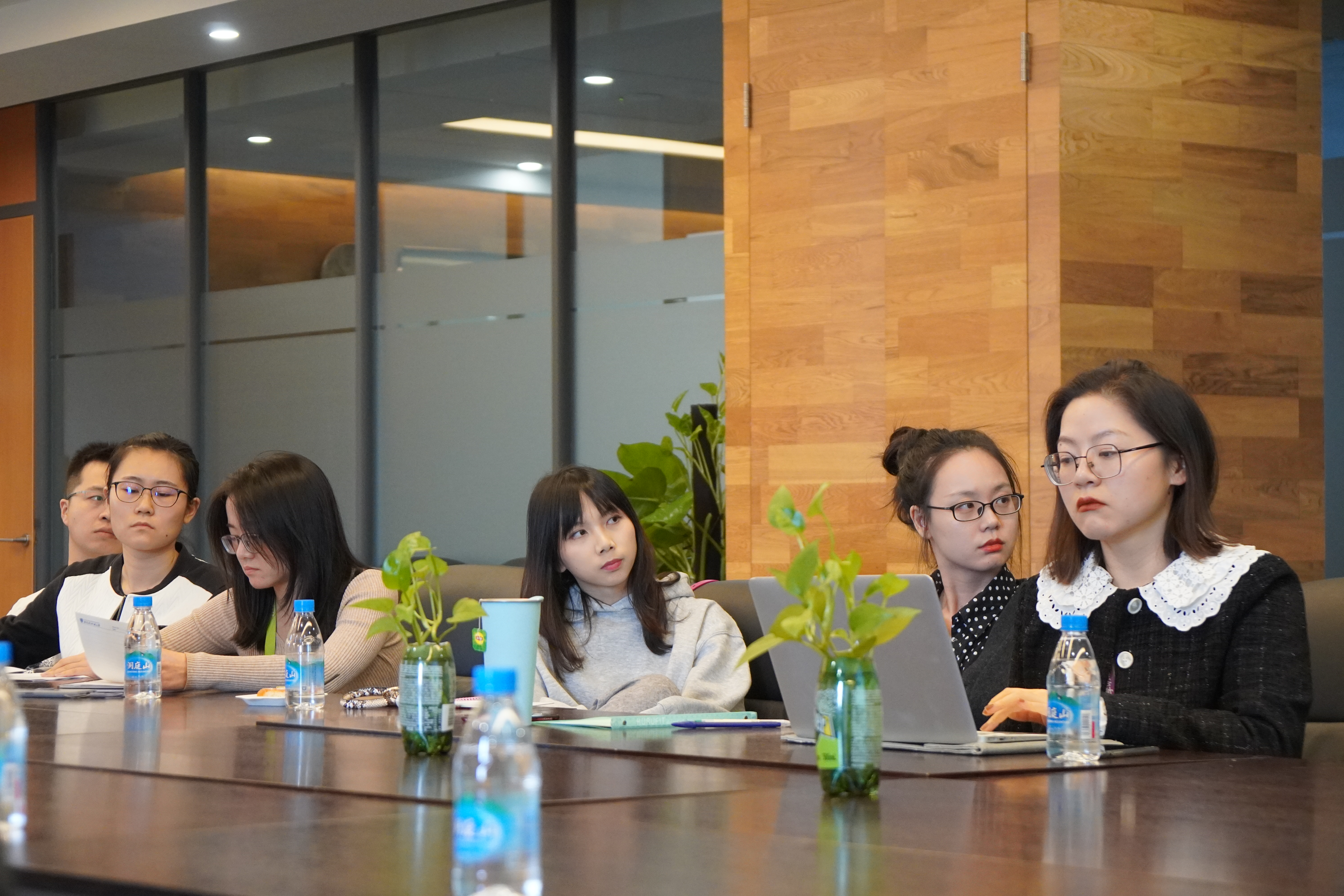19 Jan 2021
On 6th December 2020, a seminar on How to Write a Research Paper, presented by Dr Beibei Tang, the Dean of School of Humanities and Social Sciences (HSS) at Xi’an Jiaotong-Liverpool University (XJTLU), marked the end of HSS Postgraduate Research Students (PGRS) Methodology Training Programme of this semester.
Dr Beibei Tang
Consisting of four different parts including research design and qualitative research methods, quantitative research methods, research seminars, and research day, the PGRS Methodology Training Programme is the first integrated methodology training programme designed for PhD study in humanities and social sciences disciplines at XJTLU.
Inspiration for research
“The aim of this programme is to provide disciplinary and methodological trainings for PhD students in School of HSS,
“PhD research projects in humanities and social sciences today tend to be multi-disciplinary and our PhD students work on different research topics. The PGRS seminar series aims to help the students carry out their research with necessary disciplinary trainings, in addition to supervision for their individual, specific research projects.” Said Dr Tang.
In this semester, the seminar series focuses on ‘research design and qualitative research methods’ which has introduced students to a variety of considerations that determine their choice of research methods. Topics on different research strategies, design and methods as well as how theory could guide the formulation of their research questions have also been discussed to help students design and conduct their own research project.
Ms. Li Ji, PhD student from Department of Applied Linguistics tells that “although I know how to build up the methodology of my research, I had never traced back to the very start point or the origin of different research design. The first seminar about the ontology and epistemology provides me a more in-depth understanding about my own research. "
 Ms. Li Ji | PhD student
Ms. Li Ji | PhD student
In the next semester, the seminar series will focus more on introducing a variety of quantitative research techniques and the methods of generating, refining, and testing hypotheses to guide students to understand the logic of statistical inference and develop their skills in conducting quantitative research project independently.
"Wow moments" in discussion
In addition, the PGRS seminar series also serves as the platform to enhance the communication among student from different departments while provide additional opportunities for students to get academic support from academic staff from various research backgrounds at the same time.
Discussion
Li Ji used the word “inspiring” to summarize her experience in the training programme. “For me, I had a lot of ‘wow moments’ when communicating with peers and the professors during these seminars. Exactly those moments inspired me to modify and refine my current research project.”
“The journey of doing a PhD in humanities and social sciences can be isolated. The School hopes to have more frequent, regular communication with the PhD students to foster more intellectual exchanges between the staff and the students, as well as between the students, and to provide all-encompassing research support and environment to our PhD students.” Said Dr Tang.
In this regard, Ms. Xin Xu, a third year PhD student from Department of China Studies tells that she has gained a wealth of experience through two years of study and research, which helped her forming an in-depth understanding in academic research. Bringing such experience and understanding into the training programme enables her to conduct more active interaction with the teachers. The punches of ideas help to unfold new possibilities for her own research project.
 Ms. Xin Xu | PhD student
Ms. Xin Xu | PhD student
“I think students were highly engaged in the seminars,” said Dr Xi Liu, one of the teachers in the training programme from Department of China Studies. “At my seminar on ‘research questions, literature review and theory’, I encouraged them to introduce their research questions by using the framework I suggested to them. I found them very active in the discussion and posed lots of good questions upon my feedbacks.”
 Dr Xi Liu
Dr Xi Liu
Apart from Dr Liu’s seminar on “theory, literature review and research questions” and “how to write a research paper” by Dr Tang, Dr Maja Mikula, Dr Xianwen Kuang, Dr Dimitris Kitis, Dr Sara Sterling, Dr Yanning Huang, Dr Songqing Li, and Dr Ceren Ergenc have also been invited to participate in the training programme to share their knowledge on a wide range of topics, including the ontological and epistemological issues in social research, research strategies and research designs, sampling in qualitative research and research ethics, ethnography and participant observation, interviewing and focus groups, discourse analysis and critical discourse analysis, and qualitative data analysis respectively.
A long term goal
In addition to its immediate aims to help the students with their PhD thesis, the training programme has a long-term goal as well. According to Dr Tang, “the trainings on research design and methods, quantitative and qualitative, in humanities and social sciences disciplines will not only help the PhD students with their thesis, but also prepare them better for the job market later.”
“The significance of dabbling with different research aspects and methodologies will become increasingly vital over time. The more methodologies you can master, the more likely you are to become an independent researcher.” Said Dr Xianwen Kuang, the PGRS director of the training programme.
 Dr Xianwen Kuang
Dr Xianwen Kuang
Starting from introducing different methodologies, a logical and rigorous sequence of the seminars is purposively constructed from the start point of ontology and epistemology about research, how to discover research gap, the way of generating research questions, writing literature review, methodology, analysis and to the final publishing. The series of seminars provide PhD students with examples of course construction; furthermore, students can also practically master the basic teaching skills through the student-led seminars twice every semester.
“It is helpful for our future career development. The seminars help me to build up a clear outline about how to construct a research; they also present practical examples of how to organize the seminars and what strategies can be used to guide and involve students when delivering a seminar. All those experiences are priceless for us who will enter academia after graduation.” Said Li Ji.
Looking forward to the future
In fact, not only students, staff from different research filed can also benefit from the training programme.
“I’ve learned a lot from my colleagues’ expertise in their specific disciplines,” said Dr Liu.
She explains that the seminar on the close relationship between ontology and epistemology was very enlightening. “It greatly inspired me when I figure out the theoretical framework of post-human feminism for one research paper. Other seminars on critical discourse analysis and ethnography also helped me improve the methodology of one of my recent sociological study,
“The seminars offered many useful tips and suggestions for not only students but also staffs.”
 Seminar
Seminar
“We are hoping to develop this training programme into a bigger project in the future,” said Dr Kuang, “the idea is to invite PhD students, staff, and anyone who interested in in humanities and social sciences research, across campus to attend the seminar.”
By Ying Jiang
Edited by Beibei Tang and Xianwen Kuang
Photo by Ying Jiang, Mark Lent, Li Ji
19 Jan 2021








